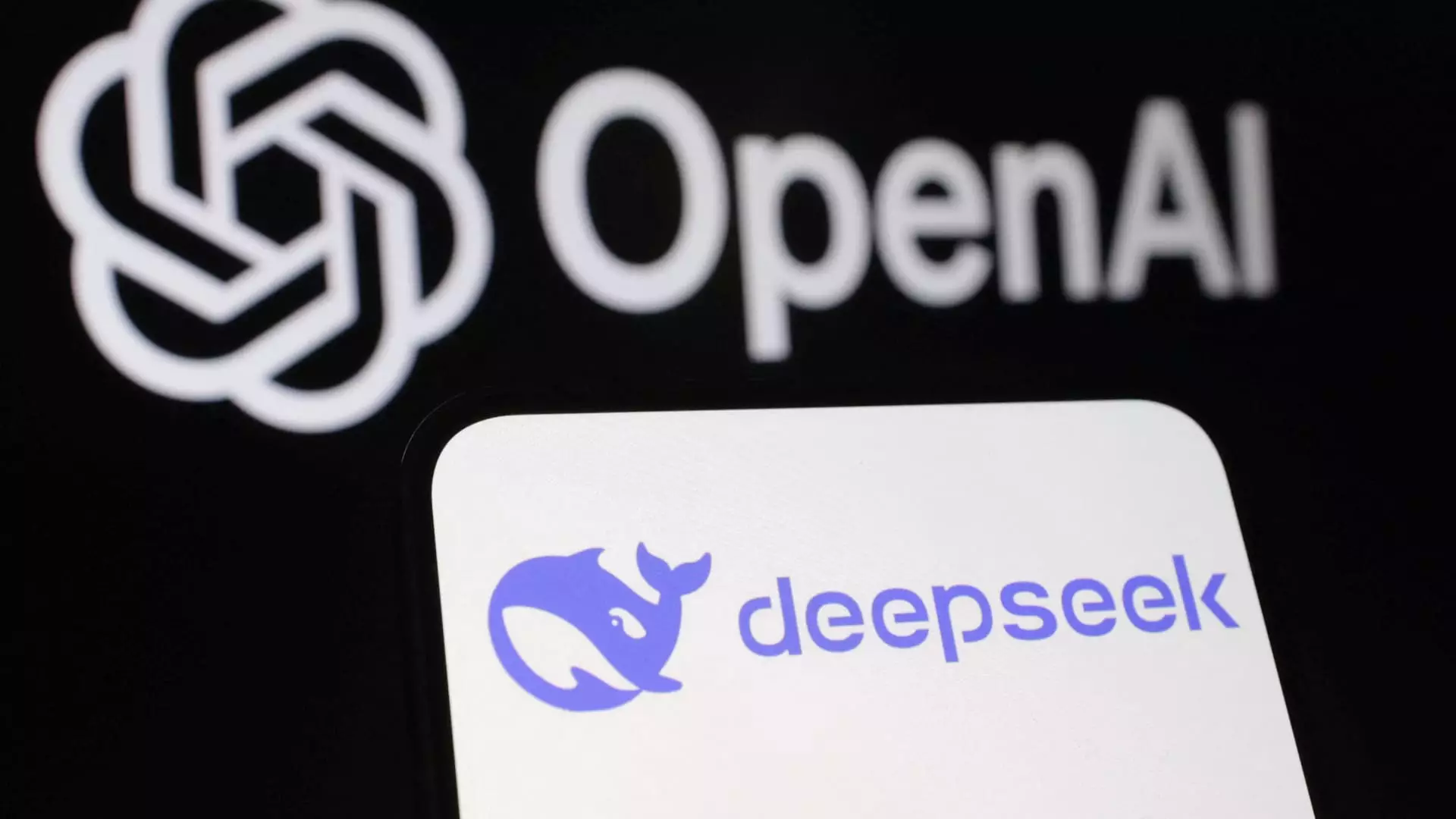In an unexpected twist in the world of artificial intelligence, DeepSeek, a fledgling startup from China, has created ripples that have reverberated through the stock market and shaken the foundation of established tech giants in the United States. Founded just six months ago by Liang Wenfeng, who leveraged funds from his AI-driven hedge fund, DeepSeek is already making headlines after its recent launch of a breakthrough AI model. This remarkable development has ushered in a wave of skepticism concerning the vast sums American technology companies have been pouring into AI research and development, genuinely calling into question the robustness of their investments.
DeepSeek’s flagship product, the R1 model, made its debut in January 2024, and the industry is buzzing with discussions about its staggering capabilities. Unlike traditional systems that rely heavily on tremendous amounts of data, R1 boasts a unique “chain of thought” reasoning ability, allowing it to produce answers with greater accuracy by processing information logically before arriving at a final conclusion. This approach contrasts sharply with many American AI models, which have operated under different paradigms. Consequently, R1’s strong performance in independent evaluations has pushed the mainstream narrative of U.S. supremacy in AI research into uncharted territories.
The real fireworks began shortly after DeepSeek’s assertion that R1 outperformed OpenAI’s renowned models in various assessments. The implications of this claim cannot be understated, as it was a direct challenge to the dominance historically held by American companies, particularly Nvidia, a powerhouse in AI hardware. The news wasn’t taken lightly by investors, sparking an immediate sell-off in major U.S. tech stocks on a seemingly ordinary Monday. Nvidia, in particular, suffered considerably, seeing its shares plummet more than 12% — the kind of decline usually reserved for companies caught in the midst of scandals or significant operational failures.
As DeepSeek climbed the download charts for mobile applications over the weekend, it emerged as a legitimate competitor to pricier models like OpenAI’s ChatGPT. The market’s reactivity to DeepSeek’s advancements is indicative of a broader anxiety regarding the existing narratives surrounding AI. Investors who had previously championed the investment strategies of megacap technology firms suddenly found themselves grappling with the chilling realization that an upstart from China could potentially upend the established order.
In the days following the revelation of DeepSeek’s capabilities, the financial world witnessed a palpable shift in sentiment. Many key players in Silicon Valley expressed their concerns about the implications of advanced models emerging from competitors in countries previously deemed less competitive. Notably, Alexandr Wang, CEO of Scale AI, hailed DeepSeek’s R1 as a serious contender against the best produced by U.S. technology firms. His statement at the World Economic Forum in Davos, Switzerland, amplified these sentiments, leading to public dialogue over the potential limitations of the U.S. AI industry in the face of rapidly advancing international rivals.
Moreover, the chatter surrounding DeepSeek was further fueled by prominent investors, such as Marc Andreessen, championing the advancements the startup had made in its fledgling stage. The strategic advantage possessed by DeepSeek, particularly its acquisition of 50,000 Nvidia H100 chips amidst controversial export bans, cemented its status as a significant new player in the AI landscape. Such developments have sparked interests across the venture capital community, raising questions about the future trajectory of technology investments and the global positioning of U.S. companies like Nvidia.
DeepSeek’s journey exemplifies a significant pivot in the ongoing narrative of technology innovation — showcasing how swiftly fortunes can change in the rapid-paced world of AI startups. It serves as a case study in globalization, suggesting that even fledgling companies in countries not traditionally viewed as tech leaders can emerge as potent adversaries to established norms. This shift invites a broader reflection on the societal and economic implications of such disruptions, as stakeholders grapple with the new realities of a competitive landscape defined by rapid technological advancements.
As the dust settles on the initial shock of DeepSeek’s impact, one question remains paramount: can the traditional titans of the tech industry adapt quickly enough to reclaim their dominance, or are we witnessing the emergence of a new paradigm in artificial intelligence, one that may reshape the future entirely? Investors, industry leaders, and technology enthusiasts alike look on with a mix of anticipation and trepidation as the AI revolution unfolds, signaling that this journey has only just begun.

